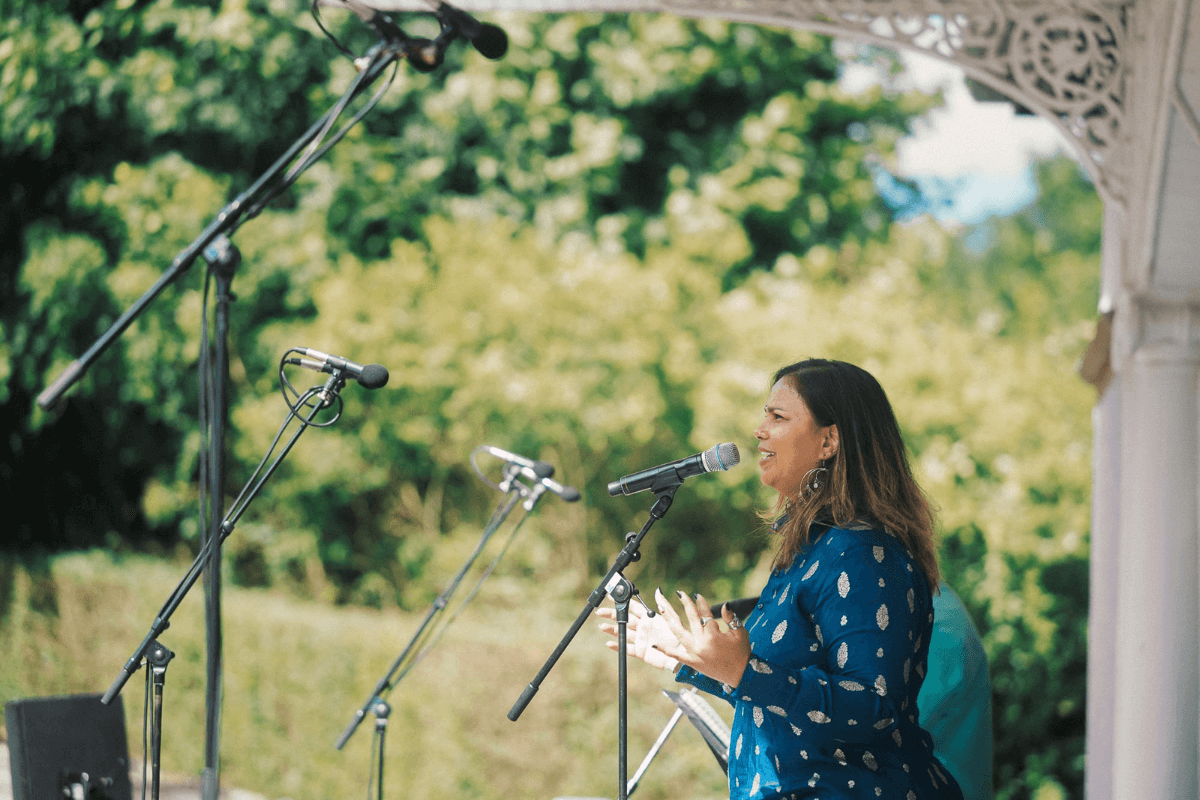My mother introduced me to dance and music at an early age. But she did more than just that - she empowered me as both an artist and a woman.
She showed me that music was not just about learning good technique, but about finding my own voice and using it fearlessly. She taught me resilience, reminding me that as a woman in any field, I would have to fight harder to be heard.
Her strength, her belief in me, and her unwavering support shaped the musician and the activist in me. So much of who I am, comes from her.
I became increasingly aware of the challenges women face
I moved to Scotland to study music at the Royal Conservatoire of Scotland. Last year, I graduated with a PhD from the University of St Andrews and the conservatoire.
However, as I navigated my career in the music sector, I became increasingly aware of the challenges and discrimination women face.
This realisation fuelled my drive to change things, and that’s when I decided I need to be part of a bigger movement to advocate for it.
The industry is fraught with gender discrimination, pay gaps and unequal career opportunities
I joined the Musicians’ Union a few years ago after realising how easily musicians, particularly women, can be exploited.
The Musicians’ Census: Women Musicians Insight Report, shows that the industry is fraught with gender discrimination, pay gaps, and unequal career opportunities.
Women struggle disproportionately to make a sustainable living in music; nearly half - 44% - report financial instability. For those balancing caregiving responsibilities, the obstacles are even greater, with 29% citing family commitments as a barrier.
And the most sinister aspects of this industry? The abuse and harassment that too many women endure in silence. 20% of women report experiencing discrimination, while 11% have faced direct harassment.
The fear of backlash keeps many from speaking out, with only 8% of women from the Global Majority who experienced racism feeling able to report it.
My MU journey
I didn’t just want to fight back - I wanted to be part of building something better. Through the MU, I found support, I found a movement.
Since joining the MU, I have been involved in various committees including the Network for Members who Experience Racism, and have met other South Asian artists which has been very empowering.
The Union is fighting for employer guidance on supporting musicians, it provides legal aid, safe spaces for musicians, and critical protections for those experiencing discrimination. These initiatives matter because music is not just an art form; it is an industry, and that industry must be held accountable.
I have participated in various workshops and training sessions, organised and funded by the MU, including First Aid, Mental Health First Aid, and mentoring. Additionally, I serve as the Vice Chair of the Scotland and Northern Ireland Regional Committee.
 Photo: Kris Kesiak for Glasgow Life.
Photo: Kris Kesiak for Glasgow Life.
Tying together music, higher education and activism
A significant part of my work revolves around higher education in music, quality enhancement and focusing on how we empower students to engage with social issues as creative citizens.
I also work with various communities, tying together music, education, and activism.
For me, music and the arts are inherently political. Given the social and political climate, and the open attack on EDI values in the United States, my commitment to these themes has only grown stronger.
We are seeing how systemic discrimination affects marginalised communities, and the music industry is no exception.
Women’s voices are crucial in shaping the future of our industry
Earlier this year, the MU General Secretary Naomi Pohl gave evidence to the Women and Equalities Committee as part of the Misogyny in Music enquiry.
This enquiry stems from a report written a year ago, further emphasising the ongoing challenges that women still face in the industry. The MU is actively addressing these concerns but there is a long way to go.
This is why it is essential for more women to join the MU and actively participate in its committees and democratic processes. By doing so, we can collectively push for structural changes that ensure a fair and equitable working environment for all musicians.
Women’s voices are crucial in shaping the future of our industry, and through the MU, we have the opportunity to demand better standards, stronger protections, and more inclusive policies.
Fighting for a music sector that truly values and supports women
Joining the MU is not just about personal benefit; it is about contributing to a movement that seeks to create a better, fairer industry for everyone.
Anger fuels my passion, not as a destructive force, but as hope, as a driving energy to advocate for a better, more equitable working platform for those who face barriers and discrimination.
If we want a music sector that truly values and supports women, we must engage, participate, and advocate for change together.
Women's History Month 2025
Women's History Month 2025 takes place from 1 - 31 March and aims to celebrate the contributions women have made to history, culture and society.
This year's theme is 'Moving Forward Together: Women Educating and Inspiring Generations', focusing on the powerful influence of women who have dedicated their lives to education, mentorship and leadership.
Join the Women Members' Network
The Women Members' Network is a space for women to connect, network and make positive change across the MU and the music industry. The network ensures that the voices of women are heard, and that opportunities for activism and leadership are created.